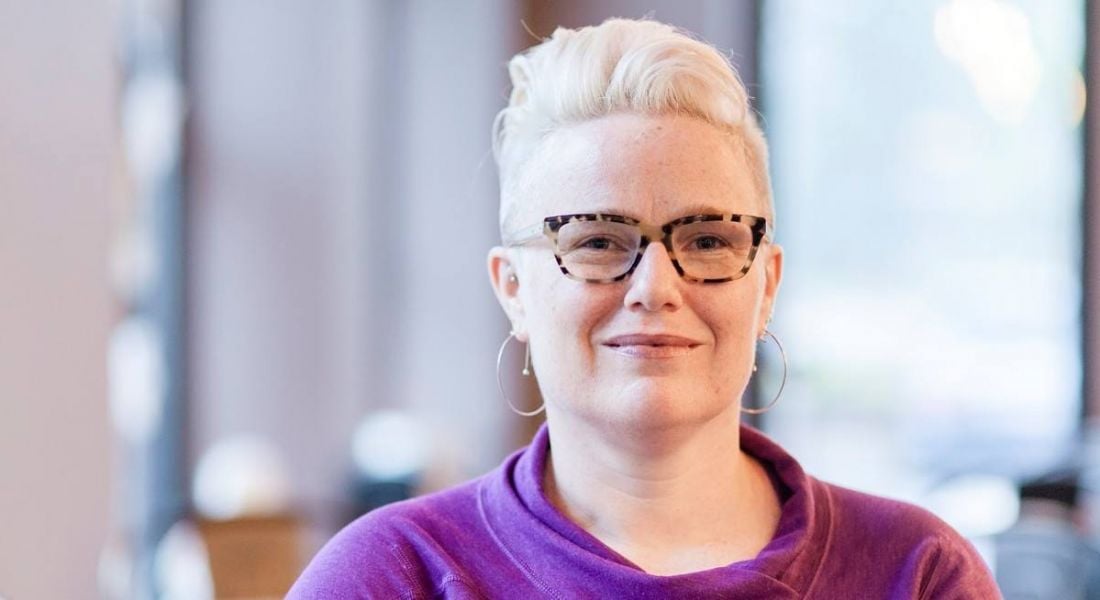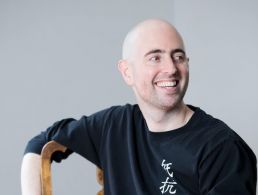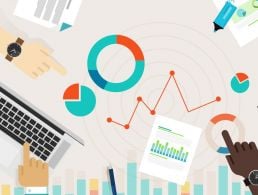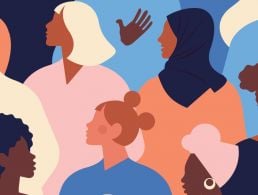From using data to make a difference in non-profits, to her experience of ‘gaslighting’, Karen Taggart shares her career story and her experience as a woman in tech.
When it comes to diversity and inclusion in the tech industry, we still have a long way to go.
Despite the gender gap being one of the most talked about diversity issues in the industry, women in tech still have countless stories of how their experience differs to their male counterparts – be that in pay, treatment or perception.
Karen Taggart is a customer success manager for CloudBees. She has had an extensive and successful career within the tech sphere, particularly within DevOps and data analytics.
Taggart told Siliconrepublic.com that her experience as a woman working in tech has been both difficult and wonderful. It took a long time before she realised that previous things she had experienced were due to gender discrimination.
But she also spoke highly of her overall experience, meeting countless intelligent, funny and innovative individuals from all backgrounds throughout her career.
While she said she couldn’t picture working in any other industry, it wasn’t necessarily clear from her early years that tech was where she was heading.
Tell me a bit about your career background
Sometimes it is difficult to explain my résumé. When I graduated from college, I had no idea what I wanted to do. I had planned on going to law school and getting a master’s in public policy, but decided to put that plan on hold for a bit and just start working.
I moved to Washington DC and looked for entry-level jobs with non-profit organisations. I ended up working in the fundraising department for a non-profit, which they call development (not to be confused with software development).
In my first job, they needed a database to keep track of major donors, so I taught myself Access and created the system. It was the early ’90s, so databases were nowhere near as complicated and powerful as they are now.
From there, I moved more into direct marketing fundraising – direct mail, telemarketing and eventually online. This is where my interest in data really began to develop and I got more involved in database marketing, list segmentation and marketing analytics. I then began working at a direct marketing agency that targeted non-profits and political candidates.
After taking a few years to earn my master’s in education and teach eighth-grade history, I returned to direct marketing and began focusing more on email and social media, where the possibility of combining data and strategy was really exploding. However, I was finding that many of the organisations I was working with did not have the systems they needed to collect the data I wanted.
So, I joined the team at People for the Ethical Treatment of Animals (PETA) to help improve some of their CRM systems and practices. Through that work, I realised I didn’t want to just work on the existing systems, but instead wanted to play a role in creating better solutions. I began working at ROI Solutions, a woman-owned-and-run CRM provider for non-profits, as a business analyst, where I spent much of my time working on third-party integrations.
While at ROI, I started a book club. The second book we read was The Phoenix Project and it blew my mind. From that point forward, I became a bit obsessed with not just helping build better software for users, but delivering it to them. As my interest in DevOps grew, I stumbled upon CloudBees and quickly knew it was the place for me.
You have done a lot of work in the past for non-profits, what was that like?
Working with non-profits is wonderful! They are full of some of the smartest, most dedicated, inventive people you will ever meet. Because they have to be so budget-conscious, many find new ways of doing things with technology.
When you work with non-profits, you get exposed to all aspects of business. While working in this field, I worked on projects in areas such as marketing analytics, API and web services integrations, credit card processing, financial reporting, database architecture, sales, proposal writing, strategic planning, and solution selection.
‘When I felt like I just couldn’t do it any more, I would remind myself why I was doing the work I was doing’
– KAREN TAGGART
The best part of working with non-profits was the end result – campaigns I worked on helped house people suffering from floods, bring medical resources to regions suffering from Ebola, win the fight for marriage equality in the US, release political prisoners, elect officials to office who support women’s reproductive rights and stop the suffering of countless animals.
After a hard day at work, when I felt like I just couldn’t do it any more and was asked to do the impossible, I would remind myself why I was doing the work I was doing.
How have you seen data analysis change over your time in the industry?
When I began working with data, the sets were so small and simple that it was possible to get by with basic statistics skills and the ability to do a few charts in Excel. That has all changed.
Datasets are huge now, analysis is no longer flat and simple, and basic statistics don’t cut it. Data analysis has rightfully grown up into data science, and it’s no longer just about reporting on what has happened in the past, but about having machines learn from the past so they can predict future behaviours.
Predictive analytics is being used everywhere now – including sports, marketing, casinos, car assembly lines and, yes, in DevOps.
Can you describe a typical day as a customer success manager?
I am not sure there is a typical day! My main responsibility is making sure my customers are adopting the CloudBees Jenkins Solutions in a way that best facilitates achieving their DevOps goals. Since each customer is different, each set of goals and each CloudBees implementation is different.
Because DevOps is still such a new field, there isn’t typically a standard ‘DevOps’ department I work with, so the cast of characters is also very different. For some customers, the team might just be two people on a small project who are installing Jenkins for the very first time. For others, there might be teams of more than 20 administering the system and hundreds, if not thousands, of users.
I review my portfolio every week and identify the specific priorities for my customers for that week. Some common activities include reviewing open support tickets to better learn the technical content for each customer, facilitating calls with customers, coordinating with the customer’s sales team, communicating customer feedback to the product team and locating targeted educational resources for specific users.
What kind of skills do you use in your job?
This is where my non-linear résumé comes in handy, because I rely on the diverse set of skills I have had the chance to develop in my various careers. The most important skill by far is listening. Since each customer is different, and the field is changing faster than any in which I have previously worked, each interaction is an opportunity to learn something that will likely help me better assist all of my customers.
Being able to synthesise the learned information, distribute it coherently to the necessary parties and turn it into actionable steps is also critical. There is always way more work than could physically be completed, so the ability to manage, prioritise and delegate tasks is critical.
There is also an incredible amount of new technical information every day, so the ability to self-study and the confidence to experiment with new technologies really helps.
What advice would you give to someone starting out a career in data?
I would give the same advice I give for anyone looking to work in any part of technology: find a job or opportunity where you can get your feet wet and your hands dirty.
The best way to learn these things is by jumping into the deep end of the pool and doing the work. Self-study outside of work is absolutely necessary, and fortunately there is an abundance of resources out there to learn.
‘Keep your LinkedIn up to date, but there still is nothing that replaces face to face’
– KAREN TAGGART
By all means, if you are really interested in it and are fortunate enough to be able to enrol in college, focus your studies on maths, computer science and data. Many programmes have internship/apprenticeship programmes as part of their course of study. I am a big fan of these, so try and find a programme that is affiliated with companies doing the kind of work you want to do.
Networking (with people, not machines) can be difficult for a lot of us, but it is critical no matter what line of work you are pursuing. Some of it can be done online, so keep your LinkedIn up to date, but there still is nothing that replaces face to face. Find a meet-up in your area made up of folks working on the same type of work that interests you and go introduce yourself. Eventually, it will pay off. I promise.
What has your experience been like as a woman in tech?
My experience as a woman in technology has been difficult and wonderful. Difficult, in that for years I didn’t really understand that some of the negative things happening to me at work were likely happening to me because I am a woman, not because I was personally incompetent or deserving of them in some way.
I am very happy to see a lot of discussion now of ‘gaslighting’ in the workplace because, looking back at my career now, I can see so many examples of this and know that it had a big impact on my self-esteem.
Even today, I have to consciously remind myself, especially when I am the only woman in the room, that I am smart enough and deserve to be where I am.
At the same time, it has been wonderful to be a woman in tech, because the vast majority of people I have met and worked with – no matter what their gender – are creative, super-intelligent, self-aware and hilarious. I can’t imagine working in any other field.
Do you think things are changing for women in tech?
Absolutely! I think things are thankfully changing for women in various industries. The #MeToo and #TimesUp movements have helped really bring issues of gender discrimination and harassment to the forefront. Women are speaking out all over; from bestselling books like Reset by Ellen Pao (which should be required reading for anyone working in the tech and venture capital industries), to less-public, individual conversations happening between brave women and their bosses and co-workers.
While we still have a long way to go, I have experienced real change – even in the past year. More companies are acknowledging that improving diversity is itself a priority, are incorporating it into their business plans and are providing the resources necessary to implement programmes that can have an impact.
Also, more tech publications, such as this one, are featuring women’s voices, expanding the perceived image of who is accepted and successful in tech. It is an honour to be included in this movement and I am excited to see what the future will bring!




